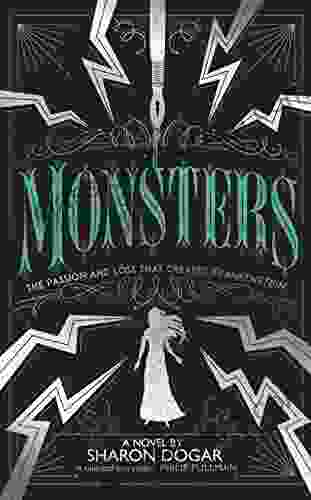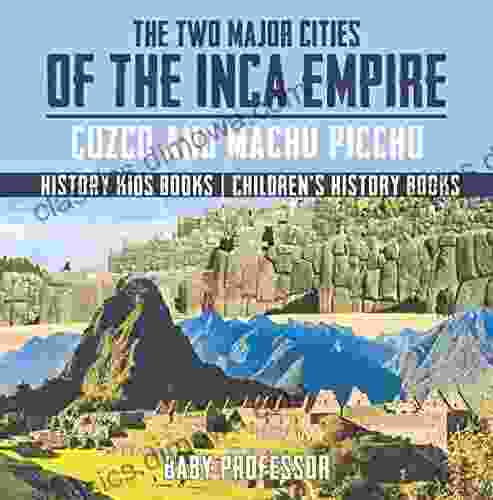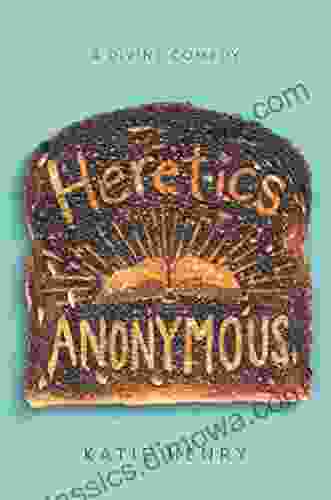Monsters: The Passion and Loss that Created Frankenstein

In the annals of literature, few works have captured the human imagination like Mary Shelley's Frankenstein. This Gothic masterpiece, first published in 1818, has endured as a timeless tale of creation, isolation, and the monstrous potential within us.
4.6 out of 5
| Language | : | English |
| File size | : | 1118 KB |
| Text-to-Speech | : | Enabled |
| Screen Reader | : | Supported |
| Enhanced typesetting | : | Enabled |
| Print length | : | 430 pages |
But what inspired Shelley to pen such a hauntingly resonant story? The answer lies in a confluence of personal tragedy, Romantic sensibilities, and the scientific advancements of her time.
The Passion of Creation
Mary Shelley's passion for literature stemmed from a childhood immersed in the works of poets like Milton, Shakespeare, and Spenser. Her father, the philosopher William Godwin, fostered her intellectual curiosity and encouraged her literary pursuits.
In 1814, at the tender age of 16, she met the poet Percy Bysshe Shelley. Their tempestuous love affair and intellectual partnership would deeply influence her writing. Percy's radical political views and his fascination with the supernatural ignited her imagination.
In 1816, a pivotal event occurred at Villa Diodati in Switzerland. Shelley, her husband Percy, Lord Byron, and John Polidori spent a stormy summer together, challenging each other to write ghost stories.
It was during this time that Mary Shelley's nightmare vision of Frankenstein's monster emerged. The creature, born from a desire to create life but abandoned by his creator, embodied the profound loneliness and isolation she felt after the loss of her mother and her first child.
The Loss of Innocence
Shelley's personal life was marked by tragedy and loss. Her mother died when she was just 10 years old, and her first child Clara died at the age of 11 months. The pain of these experiences permeated her writing.
Frankenstein's monster becomes a symbol of the deep-seated anguish and loss that accompanied Shelley's journey as a young woman. The creature's abandonment and rejection by society reflect her own feelings of isolation and alienation.
The Influence of Romantic Era
The Romantic era, in which Shelley lived, was a time of great change and intellectual ferment. Romanticism emphasized the power of imagination, the importance of individual emotions, and the beauty of the natural world.
Shelley's Frankenstein embodies many of these Romantic themes. It explores the transformative power of the imagination, the complexities of human nature, and the dangers of scientific overreach.
The novel's vivid descriptions of the Swiss Alps and the tempestuous sea reflect the Romantic fascination with the sublime and the picturesque.
The Science of the Monster
Although Frankenstein is a work of fiction, it is rooted in the scientific advancements of the time. Shelley was well-read in the works of philosophers and scientists like Erasmus Darwin, who speculated on the possibility of creating life.
The novel's depiction of Frankenstein's laboratory experiments reflects the scientific curiosity and excitement of the era. However, Shelley also raises profound questions about the ethics and consequences of scientific hubris.
Legacy and Cultural Impact
Frankenstein has had an inestimable impact on literature, film, and popular culture. The novel has inspired countless adaptations, from Boris Karloff's iconic portrayal in the 1931 film to modern reinterpretations like Guillermo del Toro's Pan's Labyrinth.
The novel's themes of creation, alienation, and the consequences of scientific advancement continue to resonate with audiences today. Frankenstein remains a powerful reminder of the human capacity for both creation and destruction.
Monsters: The Passion and Loss that Created Frankenstein is a fascinating exploration of the personal, literary, and historical forces that gave birth to one of literature's most enduring monsters.
This captivating narrative sheds light on Mary Shelley's tragic experiences, her Romantic sensibilities, and the scientific advancements of her time. By delving into the depths of the novel's creation, we gain a profound appreciation for the enduring power and significance of Frankenstein.
4.6 out of 5
| Language | : | English |
| File size | : | 1118 KB |
| Text-to-Speech | : | Enabled |
| Screen Reader | : | Supported |
| Enhanced typesetting | : | Enabled |
| Print length | : | 430 pages |
Do you want to contribute by writing guest posts on this blog?
Please contact us and send us a resume of previous articles that you have written.
 Book
Book Novel
Novel Page
Page Chapter
Chapter Text
Text Story
Story Genre
Genre Reader
Reader Library
Library Paperback
Paperback E-book
E-book Magazine
Magazine Newspaper
Newspaper Paragraph
Paragraph Sentence
Sentence Bookmark
Bookmark Shelf
Shelf Glossary
Glossary Bibliography
Bibliography Foreword
Foreword Preface
Preface Synopsis
Synopsis Annotation
Annotation Footnote
Footnote Manuscript
Manuscript Scroll
Scroll Codex
Codex Tome
Tome Bestseller
Bestseller Classics
Classics Library card
Library card Narrative
Narrative Biography
Biography Autobiography
Autobiography Memoir
Memoir Reference
Reference Encyclopedia
Encyclopedia Henry Charles Lea
Henry Charles Lea Farley Granger
Farley Granger Lars Horn
Lars Horn Dana Popov
Dana Popov Barbara Johnson
Barbara Johnson Audrey Terras
Audrey Terras Austin Mcghie
Austin Mcghie Jenna Blough
Jenna Blough Barbee Davis
Barbee Davis Atia Abawi
Atia Abawi Barbara Bretana
Barbara Bretana Marta Cardoso
Marta Cardoso Brigid Kemmerer
Brigid Kemmerer Anthony Mersino
Anthony Mersino Bryna Butler
Bryna Butler Tomie Depaola
Tomie Depaola Bar Exam Study Group
Bar Exam Study Group Peter Harnik
Peter Harnik Evelyn Phoenix
Evelyn Phoenix Aunt Lily
Aunt Lily
Light bulbAdvertise smarter! Our strategic ad space ensures maximum exposure. Reserve your spot today!
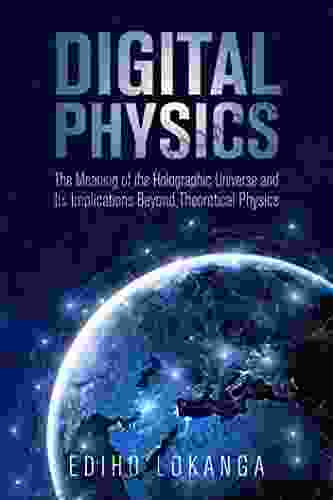
 Nathaniel PowellThe Meaning of the Holographic Universe: Exploring the Implications Beyond...
Nathaniel PowellThe Meaning of the Holographic Universe: Exploring the Implications Beyond... Robert ReedFollow ·11k
Robert ReedFollow ·11k Alex ReedFollow ·3.9k
Alex ReedFollow ·3.9k Miguel NelsonFollow ·7.3k
Miguel NelsonFollow ·7.3k Gerald BellFollow ·19k
Gerald BellFollow ·19k Roald DahlFollow ·19.8k
Roald DahlFollow ·19.8k Rubén DaríoFollow ·10.7k
Rubén DaríoFollow ·10.7k Aaron BrooksFollow ·4.6k
Aaron BrooksFollow ·4.6k Aron CoxFollow ·15.7k
Aron CoxFollow ·15.7k

 Marcus Bell
Marcus BellHigh Lonesome: A Literary Journey into the Heart of the...
<p>Hannah weaves a intricate...
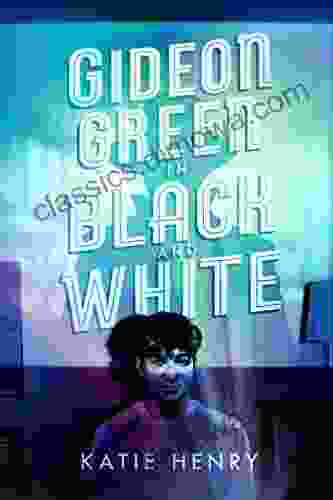
 Gabriel Hayes
Gabriel HayesRediscover Gideon Green's Timeless Adventures in "Gideon...
Embark on an Extraordinary Journey with...
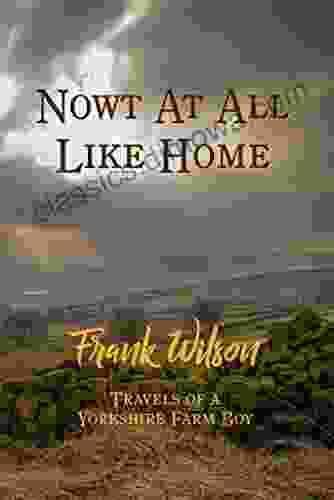
 Samuel Taylor Coleridge
Samuel Taylor ColeridgeEscape to a Literary Haven: Discover the Enchanting World...
Embark on an Extraordinary Literary...
4.6 out of 5
| Language | : | English |
| File size | : | 1118 KB |
| Text-to-Speech | : | Enabled |
| Screen Reader | : | Supported |
| Enhanced typesetting | : | Enabled |
| Print length | : | 430 pages |


